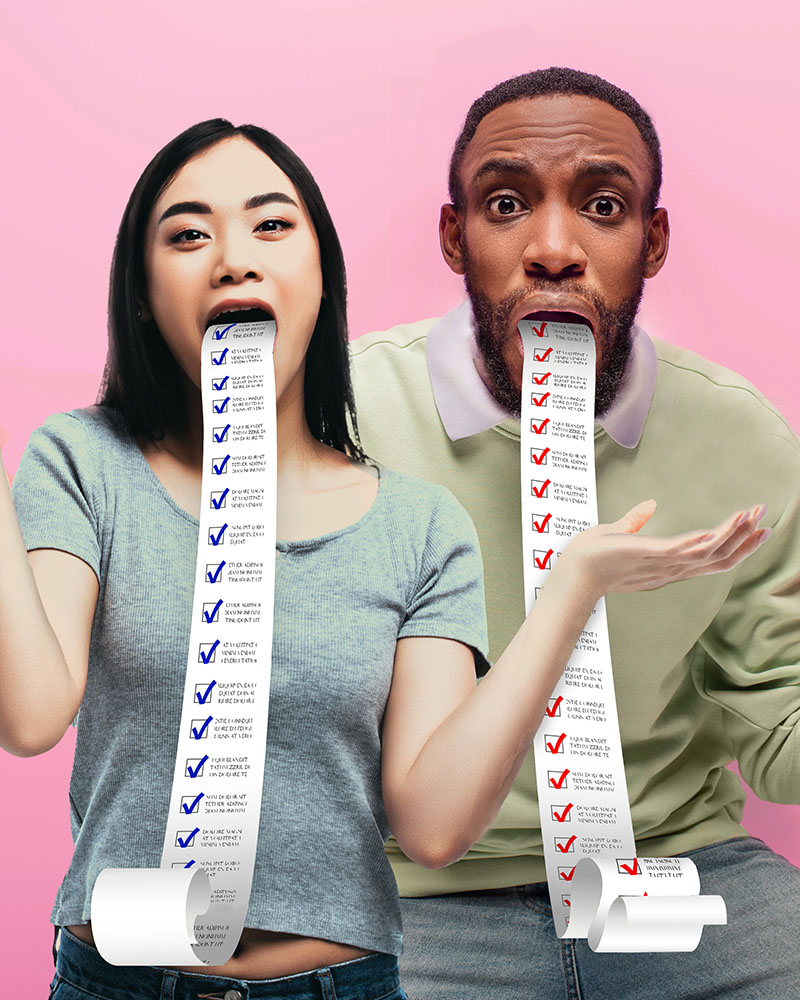Vote of Confidence
On November 8, 2016, an hour into teaching my regular Tuesday night class, I announced that I was going to end the lesson early and turn on the news of the presidential election. The polls had finally closed across the country, meaning that news organizations could now release their projected results. “OK, turn it on, but you’re not going to like it,” said one student who was already staring at his phone.
Sure enough, when I switched the digital projector over to CNN, I was shocked to see a US map largely drenched in MAGA-red. “This wasn’t supposed to be possible!” I said to myself in horror. Then, a moment later, another thought occurred to me: Why had the student assumed that I wasn’t going to like it?
I had always been scrupulous about keeping politics out of the classroom. I wanted every student to feel included and accepted regardless of whether their political beliefs aligned with mine, and the easiest way to ensure that was never to discuss politics. On every Election Day, I would exhort students to go out and vote — even offering to excuse them from class if there was no other time they could make it to the polls — but never said a word about whom they ought to vote for. Eight years before, during a similar Tuesday night class, I had turned on the news just as Barack Obama was being declared the first Black person elected to the presidency, and felt constrained to show no reaction, even as I watched tears come to the eyes of several of my students of color. Now, watching Donald Trump emerge victorious, I had to avoid displaying my despair.
I don’t know where I got the idea that part of my role as a teacher was to remain politically dispassionate. Certainly, many of my colleagues strongly believed the opposite — that it was their duty to bring politics into the classroom, regardless of what subject they were teaching. The college administration had an explicit policy of advocating for social and environmental justice. Faculty members were expected to support and encourage activism among their students, many of whom came from lower socioeconomic backgrounds or immigrant families.
Not surprisingly, I share those beliefs in progressive causes. Nevertheless, I chafed at being expected — to some degree, required— to hold a particular set of values, and I didn’t want to put my students in that same position. My job was to teach my students how to think, but not what to think. If I were to present my values as being true, I would be, in effect, telling some number of my students that theirs are false. I’m not prepared to do that.
I’ve long experienced queasiness at what was for a time called “virtue signaling” (and now appears to be called “performative behavior”). When people posted about their political beliefs on Facebook, I wouldn’t regard their posts as saying something about the world — at least not anything that hasn’t been said a million times before — but as saying something about themselves: “Look how noble I am to have these opinions.” In the words of P.T. Barnum, talk is cheap. If I’m not doing something to better the state of the world (and I honestly can’t claim to be doing much), then I haven’t earned any right to tell others what my feelings are about it, and they have no reason to care.
So when that student said, on election night, that I’m “not going to like it,” I immediately wondered what led him to assume that I favored the liberal candidate over the conservative one. Had I failed in keeping my opinions to myself, and if so, how? I knew that I hadn’t said anything in class, or even outside of class, and I hadn’t posted about politics on social media. I couldn’t have communicated my desired outcome unconsciously — say, through body language — since until that moment, I didn’t have any idea who was ahead in the election.
All I could come up with is that, having spent a few months in my classroom, the student had intuited that I just didn’t seem like a Trump supporter. I treated my students with respect and was genuinely interested in their ideas. I was flexible. I was compassionate. I often initiated discussions of ethical issues in class, but I hadn’t attempted to impose my values on my students or make judgments about theirs.
If that was indeed the reason, then I could be happy. It meant that I hadn’t failed; I had, in some sense, succeeded. It meant that I didn’t have to explicitly express my values and beliefs; I could simply live them, and know that some people might benefit. It meant that even if I wasn’t doing as much as I should to make the world better, I could take solace in the fact that in my own limited way, I was at least not making it worse.

I think it’s always helpful and leads to greater connection when we share our values as our own and explain why we hold them as opposed to sharing them as though they are “true” or “right” because as you point out that inevitably leads to an argument that what anyone else has shared that’s different is “false” or “wrong” and that never results in anything productive happening.